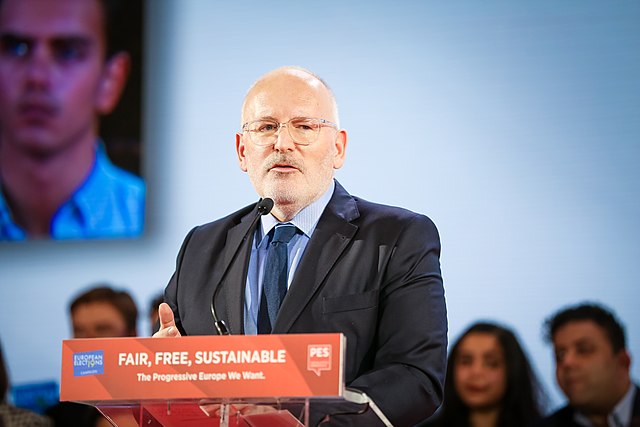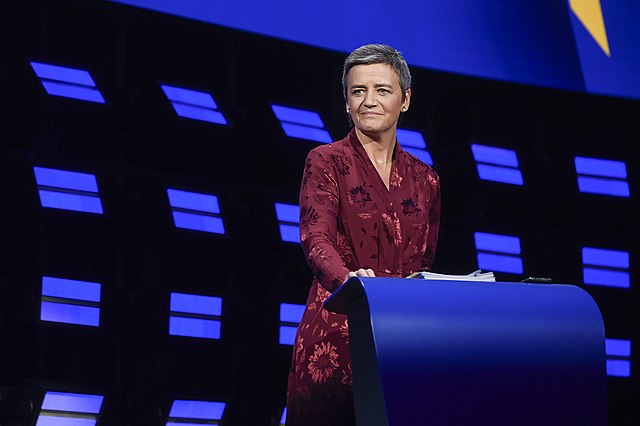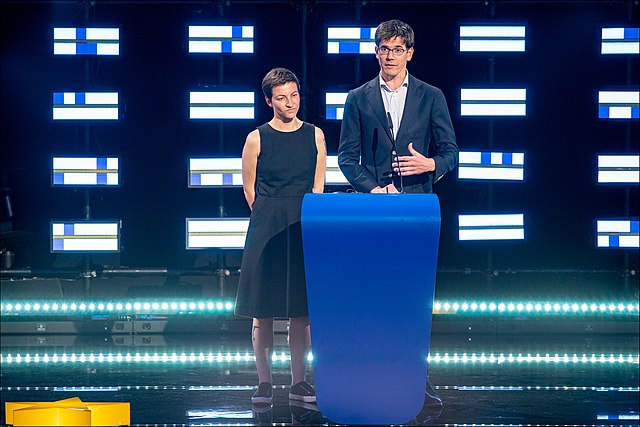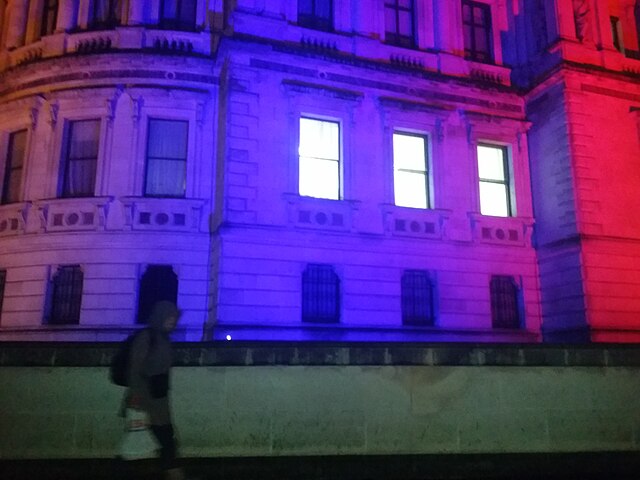2019 European Parliament election
The 2019 European Parliament election was held between 23 and 26 May 2019, the ninth parliamentary election since the first direct elections in 1979. A total of 751 Members of the European Parliament (MEPs) represent more than 512 million people from 28 member states. In February 2018, the European Parliament had voted to decrease the number of MEPs from 751 to 705 if the United Kingdom were to withdraw from the European Union on 29 March 2019. However, the United Kingdom participated alongside other EU member states after an extension of Article 50 to 31 October 2019; therefore, the allocation of seats between the member states and the total number of seats remained as it had been in 2014. The Ninth European Parliament had its first plenary session on 2 July 2019.
Image: (Manfred Weber) EPP Summit, 19 October 2017 (37534170170) (cropped)
Image: 2018 PES Congres (46352554571)
Image: Debate of lead candidates for the European Commission presidency (32917075457)
Image: Speech of the Lead Candidates (47941849351)
Brexit was the withdrawal of the United Kingdom (UK) from the European Union (EU). Following a referendum on 23 June 2016, Brexit officially took place at 23:00 GMT on 31 January 2020. The UK is the only sovereign country to have left the EU. The UK had been a member state of the EU or its predecessor, the European Communities (EC), since 1 January 1973. Following Brexit, EU law and the Court of Justice of the European Union no longer have primacy over British laws. The European Union (Withdrawal) Act 2018 retains relevant EU law as domestic law, which the UK can amend or repeal.
Foreign and Commonwealth Office illuminated in the colours of the Union Jack on 31 January 2020
Border crossing at Killeen (near Newry in Northern Ireland), marked only by a speed limit in km/h (Northern Ireland uses mph.)
Cars crossing into Gibraltar from Spain clearing customs formalities. Gibraltar is outside the customs union, VAT area, and Schengen Zone.
Image: Margaret Thatcher (1983)








